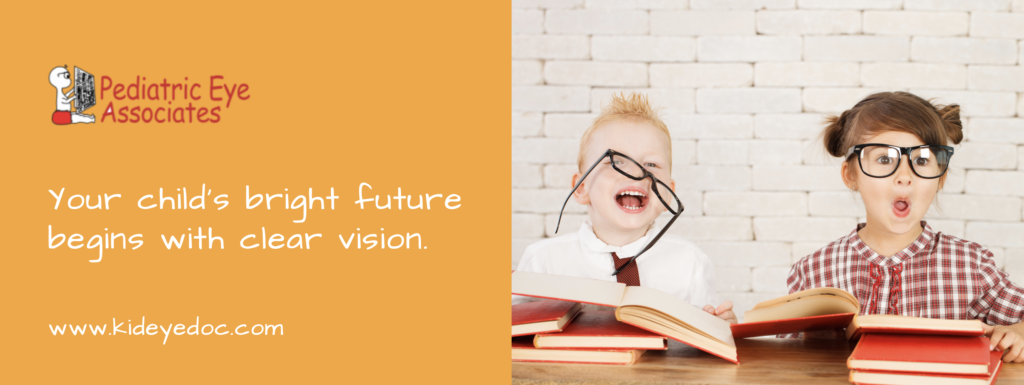Are you concerned your child’s eyes are not developing as they should? Perhaps your son or daughter has complained of vision issues, or you have noticed their eyes are not in alignment. They may have a pediatric eye disorder called amblyopia, also known as “lazy eye.”
Without treatment, amblyopia can become a permanent condition. It is important to see a pediatric eye doctor for proper diagnoses and appropriate interventions. This article will discuss amblyopia and explain what you can expect if your child needs treatment for this common pediatric eye disorder.
What Is Amblyopia?
Amblyopia is the lack of development of vision in one eye. It is commonly referred to as “lazy eye.” With amblyopia, the sight in one eye is poor, often as a result of strabismus.
It is a concerning condition because, without treatment, the brain learns to ignore images obtained from the “weaker eye.” One eye becomes stronger, while the other becomes weaker. As a result, there can be permanent vision issues.
Amblyopia typically is seen in children between the ages of six and nine. The following are symptoms of “lazy eye”:
- The trouble with depth perception (how near or far an object is from them)
- Squinting or shutting their eyes to see clearly
- Head tilting
Sometimes, parents are unaware their children have developed amblyopia. Vision tests are essential in diagnosing children who may be showing a few symptoms or are just developing the condition.
Understand your child is not alone if they have amblyopia. It is common and can be treated effectively by working with a pediatric ophthalmologist.
How Common is Amblyopia?
Statistically, amblyopia affects 3 out of 100 children. Research has supported it affects ethnic groups similarly. It is the most common cause of vision loss in children.
There are certain risk factors for amblyopia in children:
- Children born prematurely
- Children who are smaller than average at birth
- A family history of amblyopia or other eye conditions
- Children with developmental disabilities
Pediatric ophthalmologists strongly suggest vision exams start between the ages of three and five. With early intervention, treatment for amblyopia is very promising.
What are Other Causes of Amblyopia?
Pediatric Ophthalmologists are not sure what causes amblyopia. Other eye disorders can be factors in developing the condition, including nearsightedness or farsightedness (refractive errors), strabismus, or cataracts.
Thankfully, these conditions can often be treated effectively, especially with early intervention!
How is Amblyopia Treated?
The pediatric ophthalmologist will recommend treating the underlying condition. Glasses or contacts are most effective in correcting refractive errors. Surgery may be necessary for severe strabismus or cataracts.
Next, the doctor will implement interventions to correct the weak eye. Treatment options may include:
- An eye patch- By covering up the stronger eye, the weaker eye has to be used to see. Children may wear the patch for a few hours or all day, depending on doctor recommendations.
- Eye drops for the stronger eye- There are prescription drops called atropine. The drops blur vision in the stronger eye, forcing the weak eye to be used. Many families find it effective and preferable to an eye patch.
Usually, treatment starts to work within a few weeks. It is not unusual for children to have gone through more than one round of treatment to see the best results.
The earlier treatment is started after the discovery of the condition, the better. It can be more difficult to treat the condition in adulthood effectively. To prevent permanent vision problems, parents should contact a pediatric ophthalmologist to discuss concerns.
How Do I Find a Child Ophthalmologist Near Me?
If you are looking for a pediatric ophthalmologist near you, consider Pediatric Eye Associates. We are a team of board-certified, fellowship-trained ophthalmologists in New Jersey.
Our doctors,—Dr. Amy Lambert, MD, and Dr. Rachel Bloom are here to support you and your family. Contact us with any questions you have or to schedule a consultation. We hope to hear from you soon!
The material contained on this site is for informational purposes only and DOES NOT CONSTITUTE THE PROVIDING OF MEDICAL ADVICE, and is not intended to be a substitute for independent professional medical judgment, advice, diagnosis, or treatment. Always seek the advice of your physician or other qualified healthcare providers with any questions or concerns you may have regarding your health.

